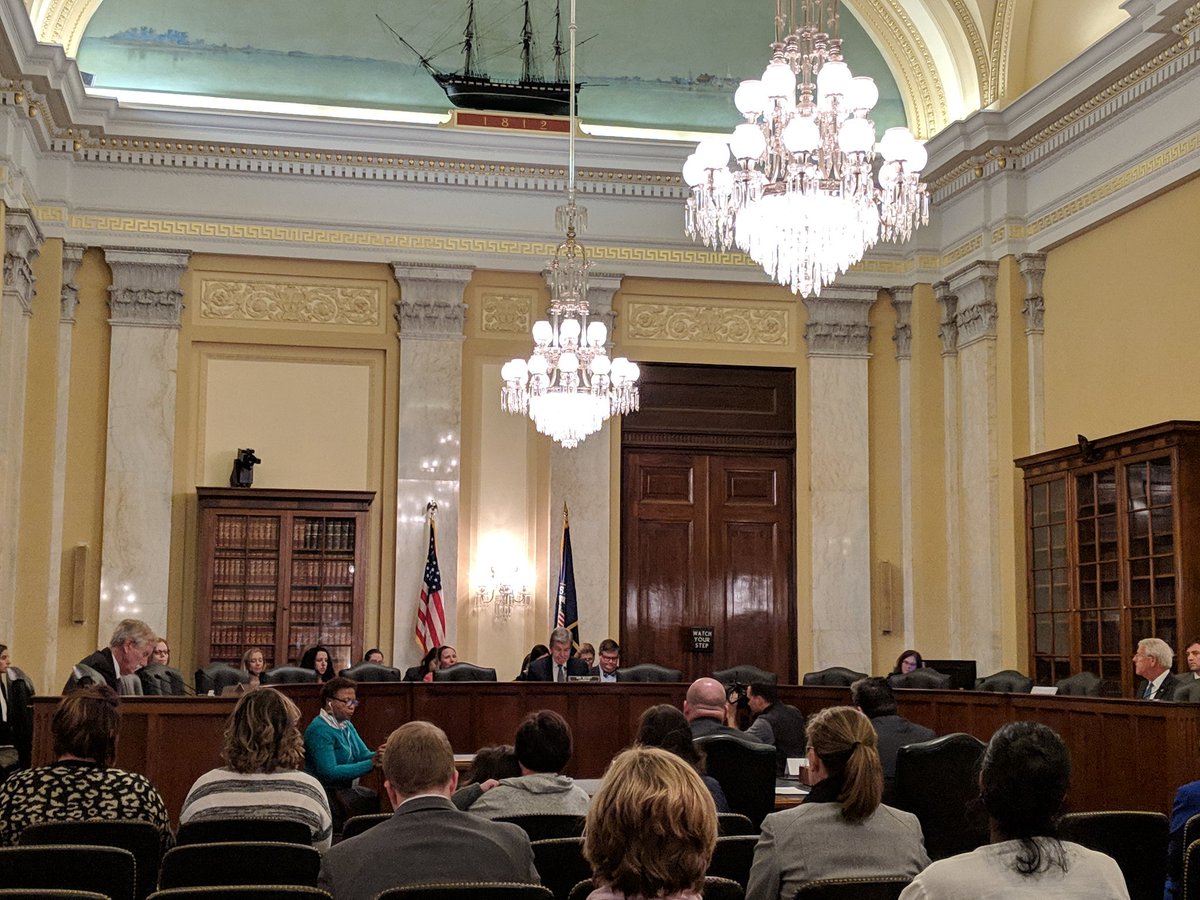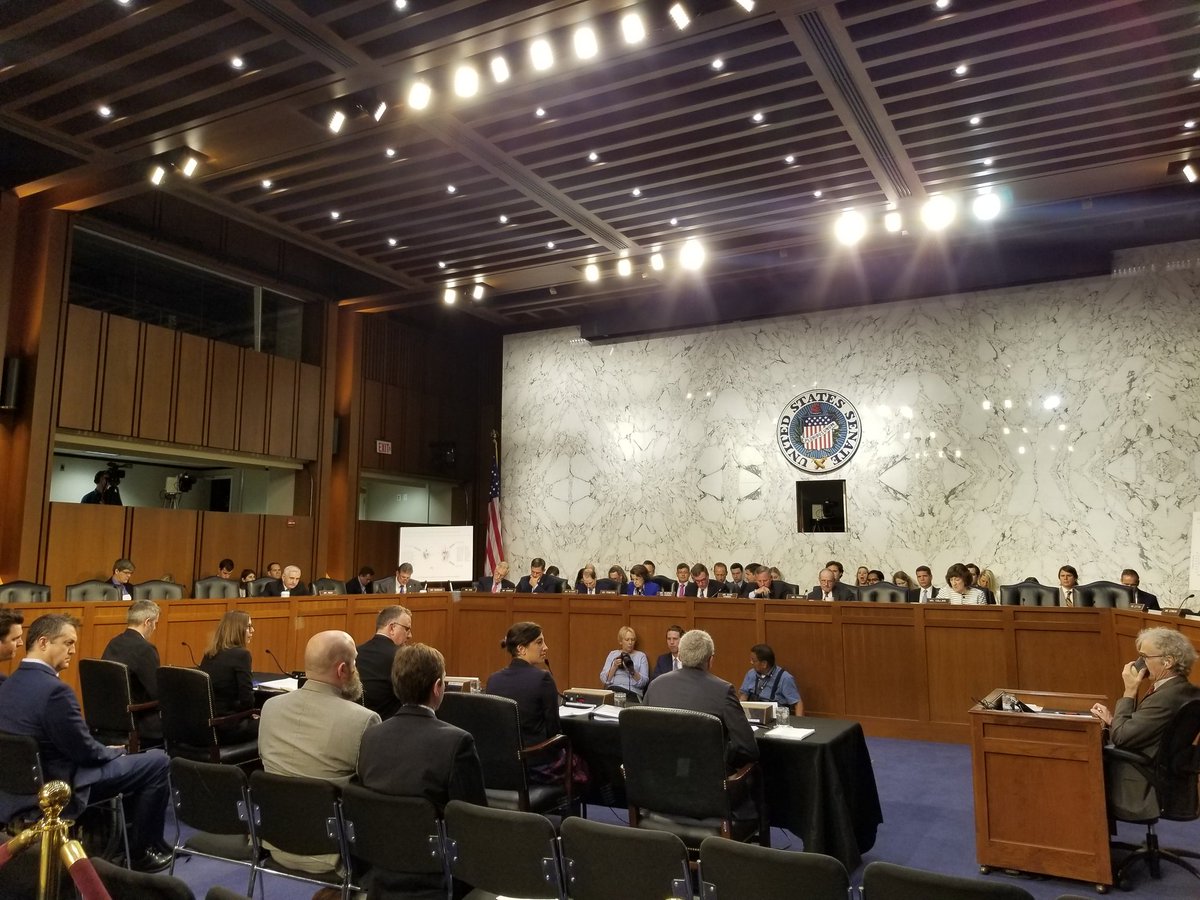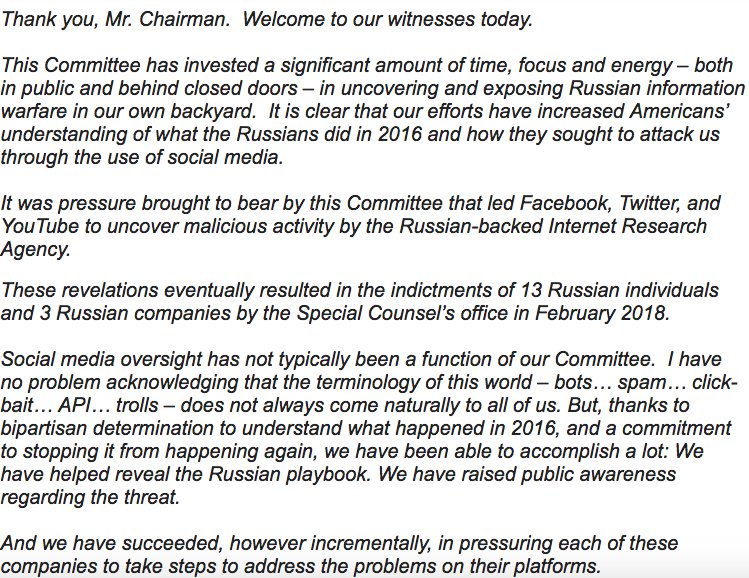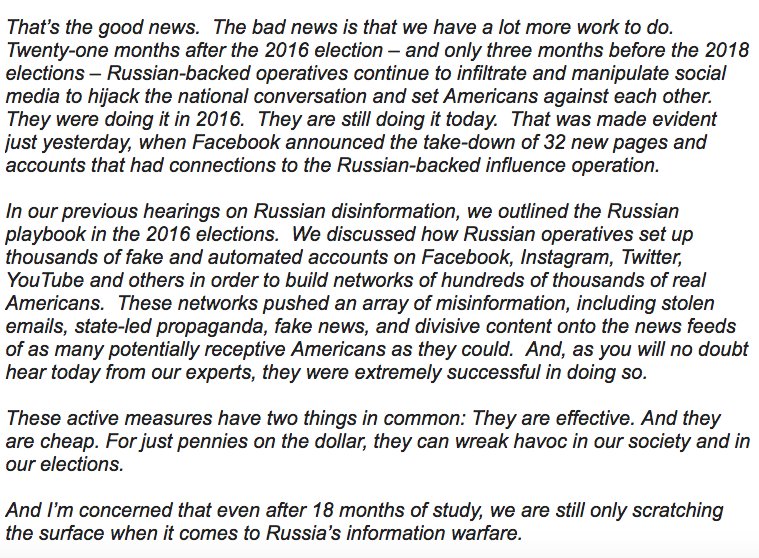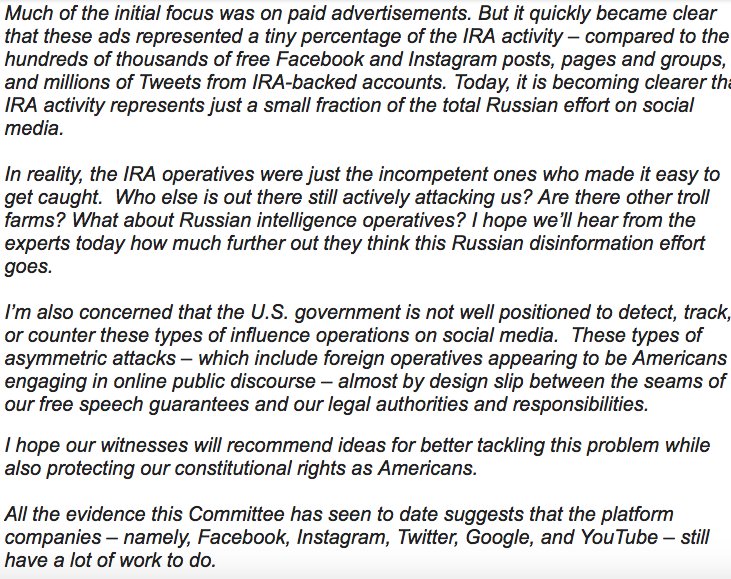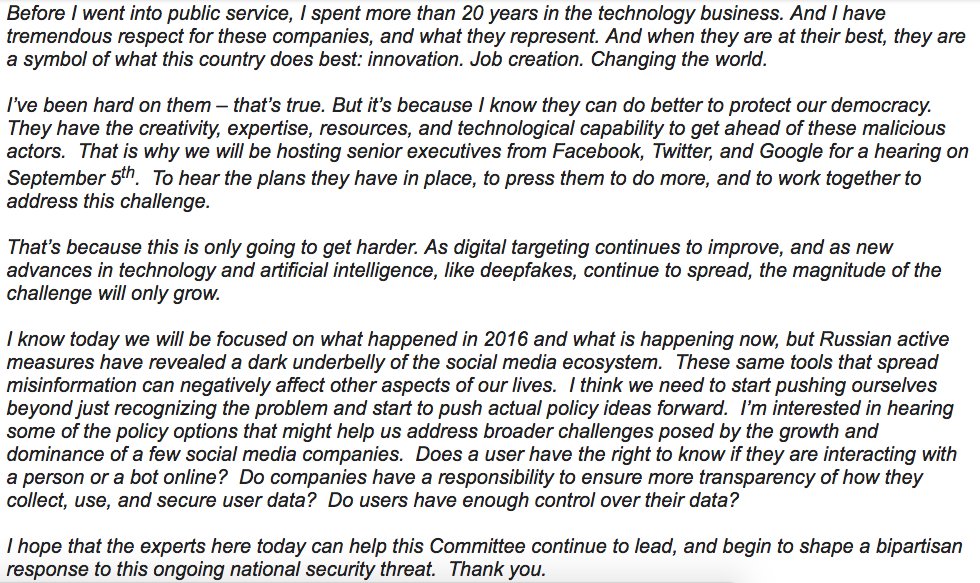"It depends on the state. ... Paper is interesting because everyone can’t use paper. If you have a disability … it’s hard to do that paper piece of" the voting process.
Masterson says DHS offers services like this to states and praises red-teaming in general as a great tool.
Hicks: “We are working a lot better than we did in 2016.”
Hicks: Under HAVA, they do have to meet some requirements.
Blunt: What about requiring an auditable ballot trail?
Hicks: That’s not required.
Hicks: We don’t advise on that specifically. States have to be vigilant about unreliable firms.
Hicks: The EAC has talked to tech firms, and they’ve given us some assurances.
Masterson explains DHS's goals, including sharing information with states quickly and providing scanning and assessment services on-site.
McCormick: "It would be very, very difficult to do that, given the dispersed character of our election infrastructure. … Each machine would have to be hacked individually."
All three industry reps say yes.
My story on Warner's concerns, for Pros: subscriber.politicopro.com/cybersecurity/…



